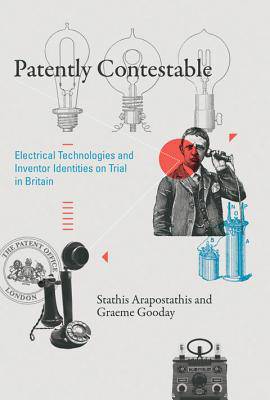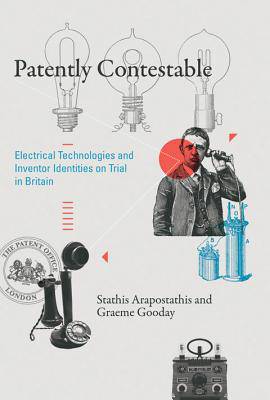
- Afhalen na 1 uur in een winkel met voorraad
- Gratis thuislevering in België vanaf € 30
- Ruim aanbod met 7 miljoen producten
- Afhalen na 1 uur in een winkel met voorraad
- Gratis thuislevering in België vanaf € 30
- Ruim aanbod met 7 miljoen producten
Patently Contestable
Electrical Technologies and Inventor Identities on Trial in Britain
Stathis Arapostathis, Graeme GoodayOmschrijving
An examination of the fierce disputes that arose in Britain in the decades around 1900 concerning patents for electrical power and telecommunications.
Late nineteenth-century Britain saw an extraordinary surge in patent disputes over the new technologies of electrical power, lighting, telephony, and radio. These battles played out in the twin tribunals of the courtroom and the press. In Patently Contestable, Stathis Arapostathis and Graeme Gooday examine how Britain's patent laws and associated cultures changed from the 1870s to the 1920s. They consider how patent rights came to be so widely disputed and how the identification of apparently solo heroic inventors was the contingent outcome of patent litigation. Furthermore, they point out potential parallels between the British experience of allegedly patentee-friendly legislation introduced in 1883 and a similar potentially empowering shift in American patent policy in 2011.
After explaining the trajectory of an invention from laboratory to Patent Office to the court and the key role of patent agents, Arapostathis and Gooday offer four case studies of patent-centered disputes in Britain. These include the mostly unsuccessful claims against the UK alliance of Alexander Graham Bell and Thomas Edison in telephony; publicly disputed patents for technologies for the generation and distribution of electric power; challenges to Marconi's patenting of wireless telegraphy as an appropriation of public knowledge; and the emergence of patent pools to control the market in incandescent light bulbs.
Specificaties
Betrokkenen
- Auteur(s):
- Uitgeverij:
Inhoud
- Aantal bladzijden:
- 294
- Taal:
- Engels
- Reeks:
Eigenschappen
- Productcode (EAN):
- 9780262019033
- Verschijningsdatum:
- 12/04/2013
- Uitvoering:
- Hardcover
- Formaat:
- Genaaid
- Afmetingen:
- 164 mm x 235 mm
- Gewicht:
- 553 g

Alleen bij Standaard Boekhandel
Beoordelingen
We publiceren alleen reviews die voldoen aan de voorwaarden voor reviews. Bekijk onze voorwaarden voor reviews.











